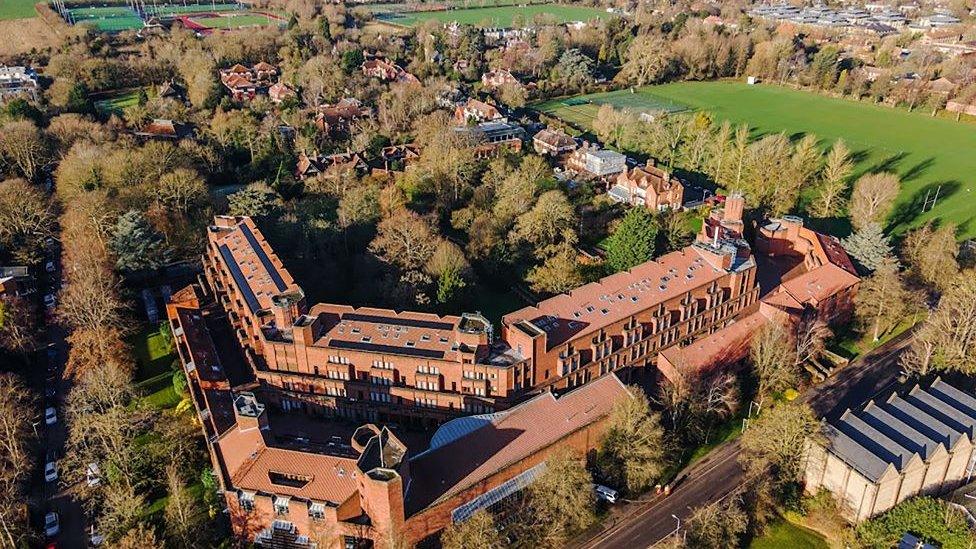Cambridge University is UK £30bn 'economic powerhouse' says report
- Published
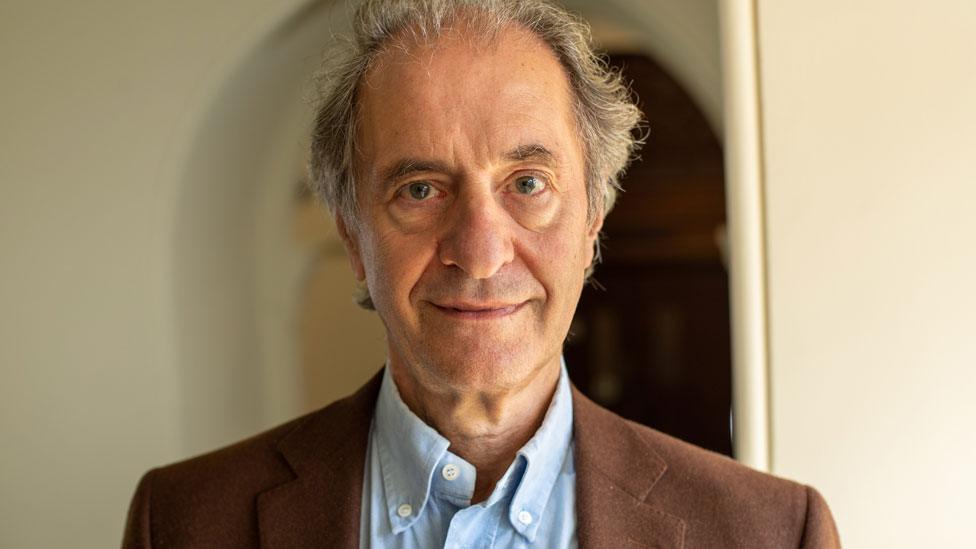
Acting vice-chancellor Dr Anthony Freeling said the university wanted to grow the high-tech Cambridge cluster
Cambridge University is a research powerhouse which adds nearly £30bn to the UK economy a year, a report said.
Analysis by London Economics , externalfound £23bn of this came from spinout and start-up companies. It looked at the university's impact from 2020 to 2021.
Acting vice-chancellor Dr Anthony Freeling said "a deliberate strategy of investing in innovation creates jobs".
The report highlighted the university's connection to successful companies like ARM, external and Abcam, external.
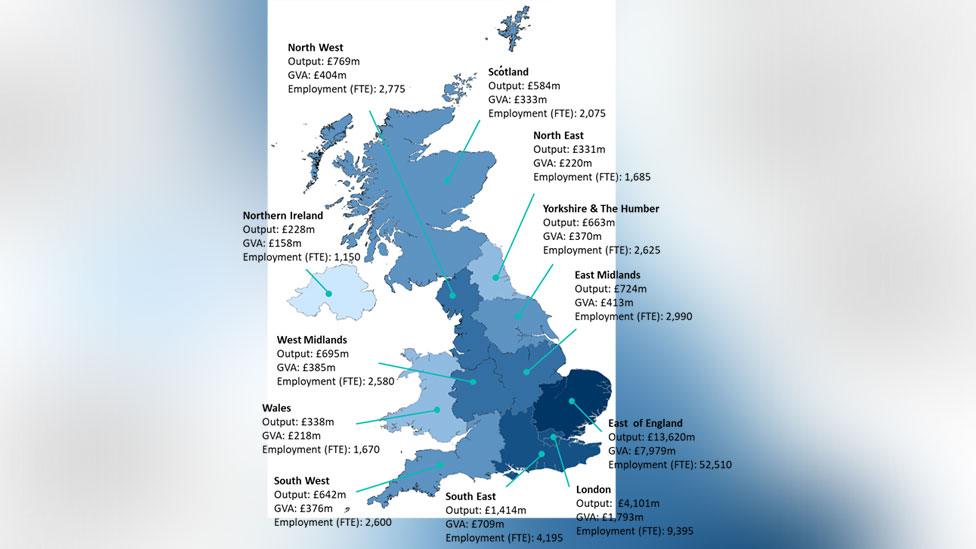
The report's analysis has been mapped to reveal the extent of the Cambridge University impact
It said a combination of technology transfer, venture capital, government support and infrastructure funding in a "very deliberate strategy" of innovation and commercialisation had resulted in 178 spinouts and 213 start-ups.
Dr Freeling said the university's Innovate Cambridge plan, external aimed to grow the Cambridge cluster by accelerating its successful model and added: "Our goal is to accelerate progress.
"Doing so requires action in four areas of policy - better infrastructure in the city and region including affordable housing and transport and laboratory space; better access to talented, skilled individuals from across the world; stable research funding; and better access to capital, particularly in the scale-up phase."

Cambridge University spinouts
Abcam - the global life sciences company was founded in 1998 by Jonathan Milner and David Cleevely to sell good-quality antibody reagents and is now a Nasdaq-listed multi-billion-dollar business
Nyobolt, external - was spun-out from the Department of Chemistry by co-founders Prof Dame Clare Grey and Dr Sai Shivareddy in 2016 as an ultra-fast charging battery solution to tackle electric car drivers' range anxiety
ARM - the microchip designer is sometimes referred to as the "crown jewel" of the UK's technology sector and was founded in Cambridge in 1990

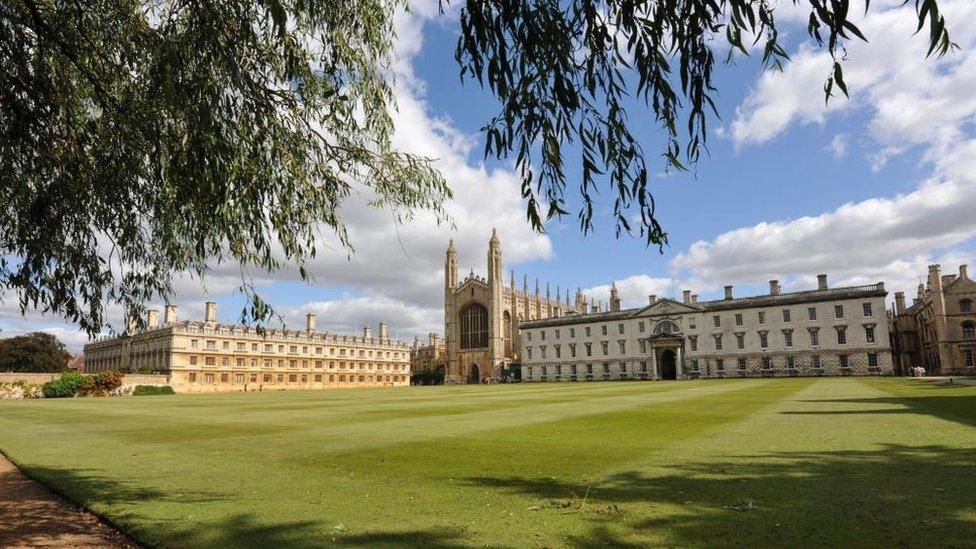
The university has 24,450 students, including more than 9,000 international students from 147 countries
The university, which was founded in 1209, consists of 31 autonomous colleges and 150 departments, faculties and institutions.
Its pioneering research has included theories of gravity and evolution, splitting the atom, revealing the secrets of DNA and resulted in more than 120 Nobel prizes.
Dr Freeling also called on the UK government to commit to participating in the EU research funding body Horizon Europe, which provides billions of pounds of research support for academics across Europe.
"An early commitment to Horizon Europe is essential to underpinning future success as it provides not only the stability of funding required to make long-term research plans but also access to vital international networks and collaborations," he said.

Find BBC News: East of England on Facebook, external, Instagram, external and Twitter, external. If you have a story suggestion email eastofenglandnews@bbc.co.uk, external
- Published16 March 2023
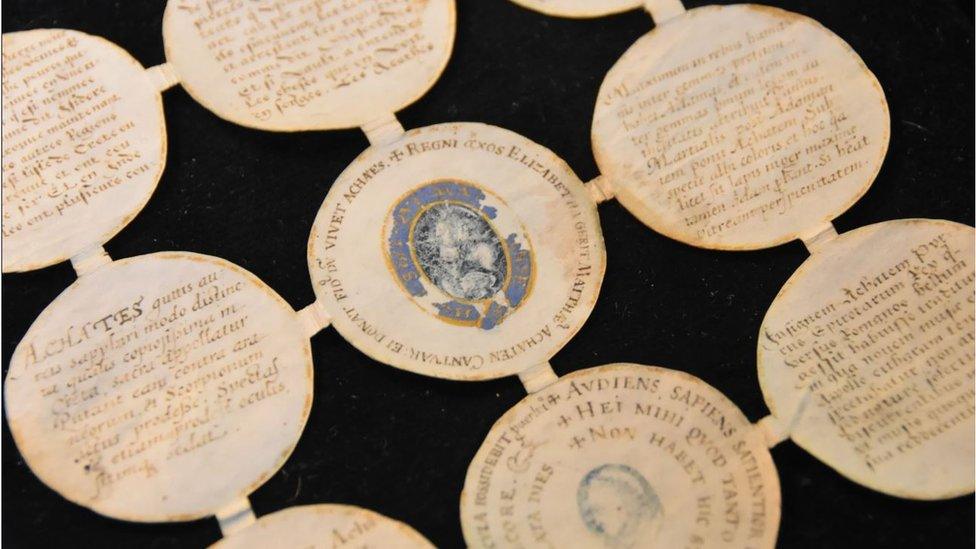
- Published3 March 2023
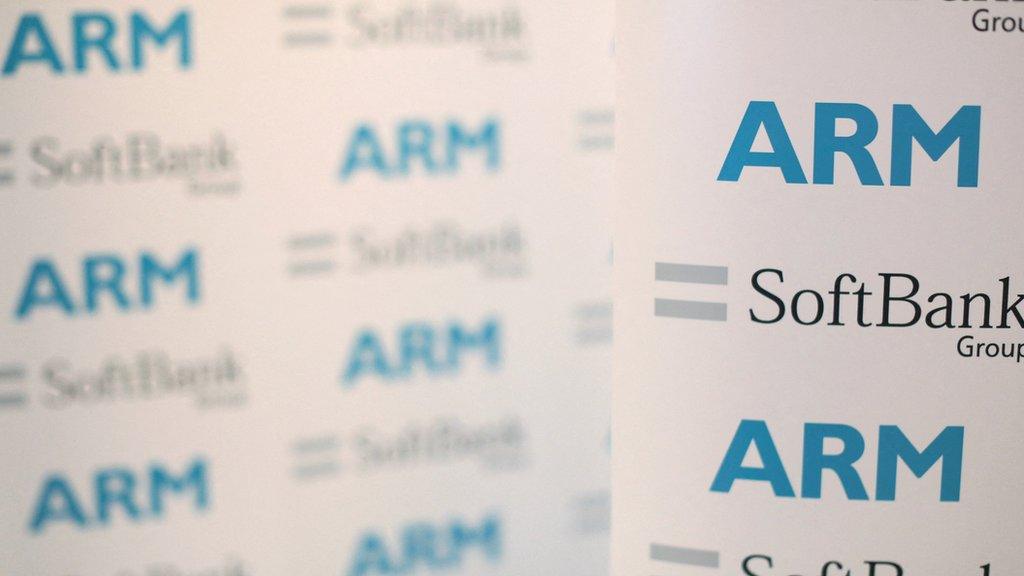
- Published23 February 2023

- Published8 February 2023
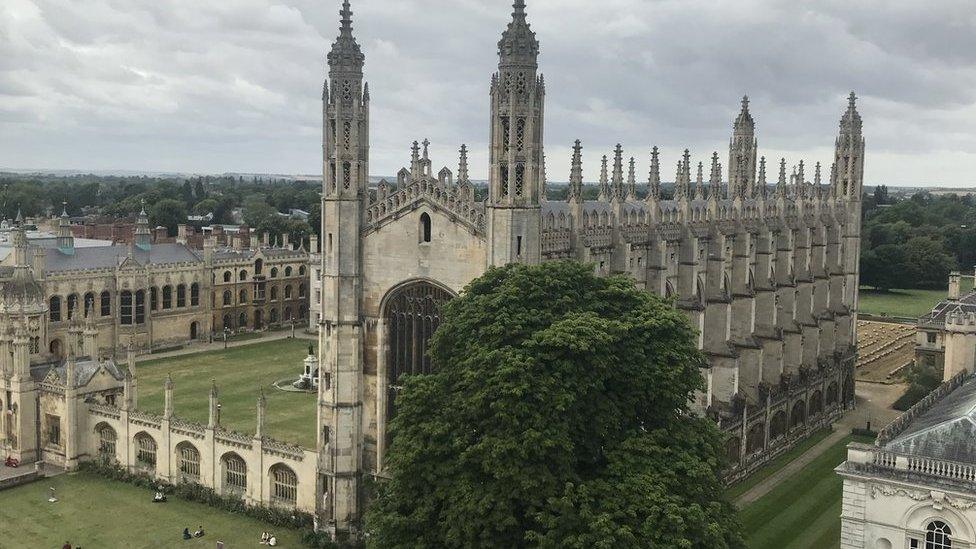
- Published16 January 2023
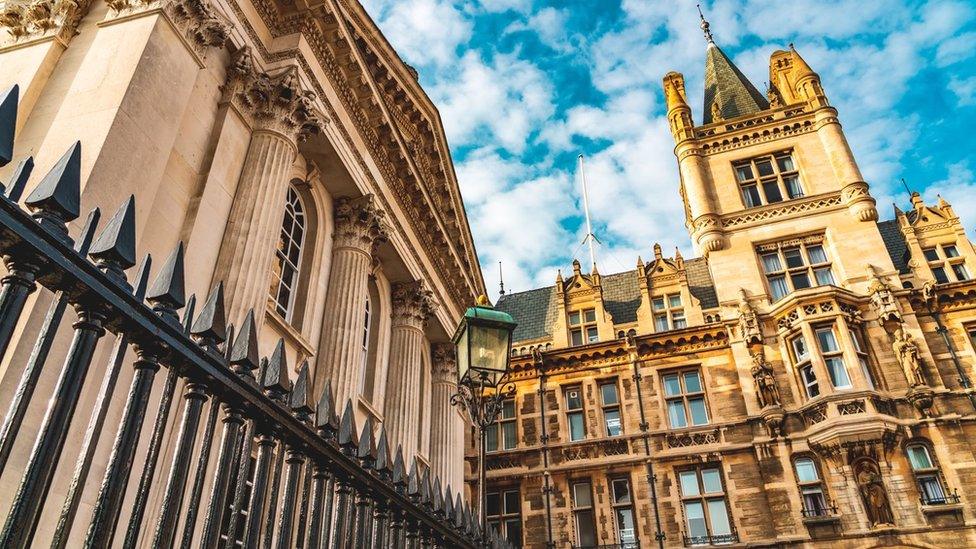
- Published14 December 2022
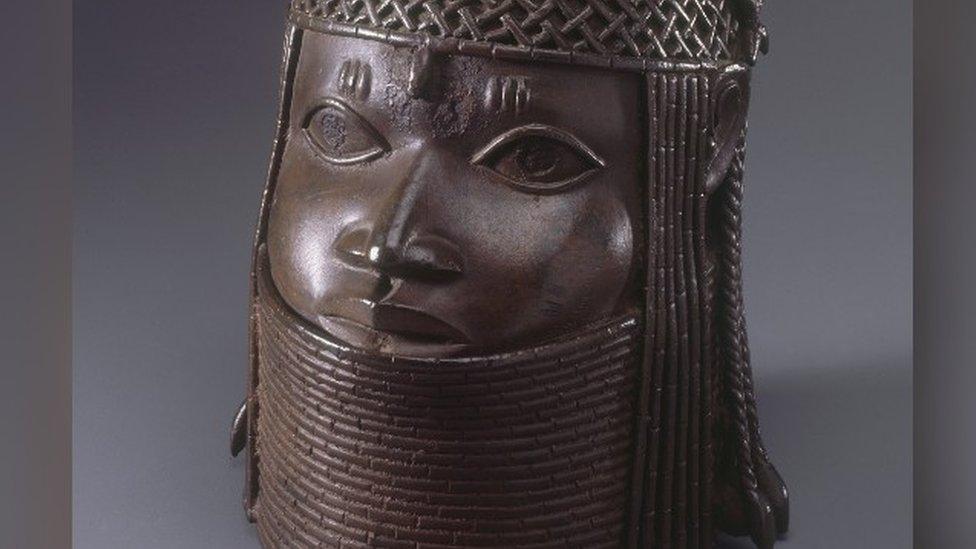
- Published18 November 2022
